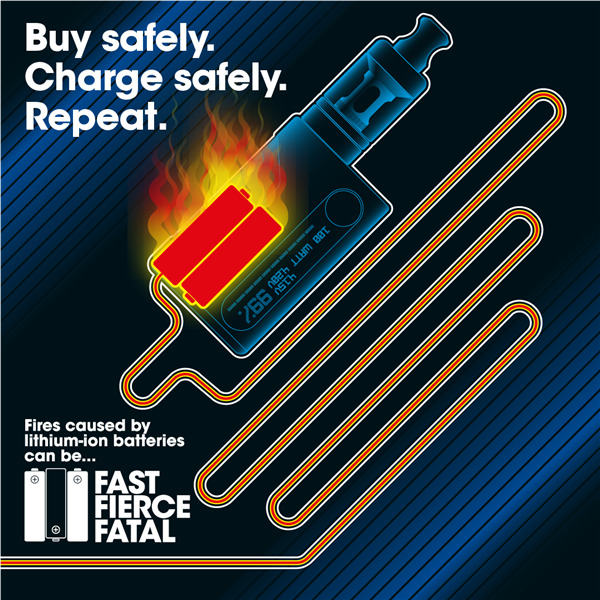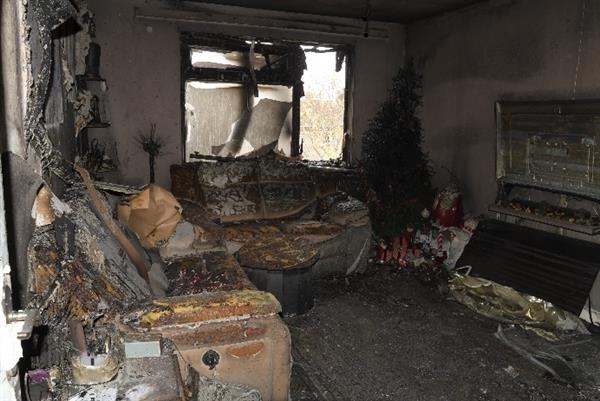
|
||||||
|
|
||||||
|
||||||
|
Fast. Fierce. Fatal. Our campaign about lithium-ion battery safety. |
||||||
|
Good afternoon, Resident. Most of us have rechargeable devices and gadgets at home. Perhaps you’re about to buy one this Black Friday, or for Christmas. The batteries in most of them are a type called ‘lithium-ion’. They’re normally very safe. But, if things do go wrong, the consequences can be devastating. This is why we’ve launched a new campaign called ‘Fast. Fierce. Fatal.' Please read on to learn more, and share this information with your family and friends. Thank you.
Phones, laptops, vapes, cordless vacuums... e-bikes, mobility scooters, cars... electric toothbrushes and kids’ gadgets. More and more of the things we use and recharge rely on lithium-ion batteries. Thankfully, the majority are very safe. But if lithium-ion batteries go wrong, the fires they start can be: FASTFires can start suddenly and spread incredibly quickly. FIERCEThey burn at extreme temperatures, sending out toxic fumes and explosive vapours. FATALPeople have died in these fires – often with little time to get out. Our campaign is designed to help you know the risks – and take some simple steps to keep safe.
Why we’re talking about this nowWith Black Friday deals rolling out, and electrical products being sold at bargain prices, now is the ideal moment to launch this campaign. Christmas is also just weeks away, and many of the devices we’ve mentioned will soon be bought and gifted. A tragic case studyJust over a year ago, a young couple in Coventry tragically lost their lives in a house fire. It was caused by the lithium-ion battery on a poorly modified e-bike. The fire started suddenly and burned so fiercely that there they couldn’t escape. Natasha and Karlo’s two dogs also died.
The numbersLithium-ion battery fires are becoming one of the biggest fire risks in our homes. Our firefighters attended 40 lithium-ion battery incidents in 2023 and 69 in 2024. By 31 October this year, we’d already responded to 65. E-bike and e-scooter incidents are climbing, too: 6 in 2023, 13 in 2024, 16 by October 2025. And batteries thrown in the bin, or mixed with general waste, are sparking fires and costing the waste industry an estimated £1 billion a year. Does this affect me?In short, this advice is for everyone who uses rechargeable devices: The adviceWe’ve split this section into five sections: buying, charging, storing, spotting and disposing. BuyingA few simple choices make a huge difference: ChargingMost battery fires happen during charging. Here’s how to charge safely: StoringHow and where you keep your devices and their batteries matters: SpottingIf a battery is acting strangely, it’s trying to tell you something. Watch out for: If you notice any of these, stop using it immediately. DisposalDon’t put batteries in with your other rubbish. They could start a bin fire, set a bin lorry alight, or spark a blaze at a waste site. Damaged or swollen batteries should never be stored indoors. Instead: Please remember... If you suspect that a lithium-ion battery is an imminent fire risk, get out of your home and call 999. Do not move or handle the device or battery. For everyday safety, fit and test smoke alarms regularly. Read more about our campaign on our website.
Thank you, and have a safe week.
West Midlands Fire Service
| ||||||
Reply to this message | ||||||
|
|






